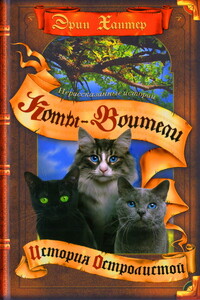The Replacement | страница 27
Beside me, Roswell was still ticking his fingers against the steering wheel. Finally, he rolled his head to the side and looked at me.
He wasn’t stupid. I knew that. He’d known me pretty much my whole life, so it wasn’t like I thought I was fooling him. The thing that kept me mute was the chance that if I said it out loud, he’d look at me differently. Maybe it wouldn’t be obvious—he’d try not to let it show—but the difference would be there.
And that was bad enough, but stranger, deeper was the fear that nothing would change at all. He might just shrug and carry on like always, which was somehow worse. The truth was an ugly thing, and I couldn’t stand the possibility that he might be okay with it when it wasn’t okay.
He was quiet, watching me in the pauses at stoplights, waiting for an answer.
I rolled down the window and stuck my head out, letting the rain splash against my face. I knew that if I opened my mouth, I’d tell him. The cold air was helping, a little, but under the car’s fiberglass quarter panels, the frame was carbon steel and I was starting to feel sick. It was getting worse.
Roswell let out his breath in the long, pressurized sigh that meant he had something on his mind. “I’ve been thinking,” he said after a minute. “This is totally not scientific, and maybe it’s not even my business—but do you think you might be depressed?”
I looked down at my hands and then I made fists. “No.”
I knew what it looked like. Lately, I was a mental-health pamphlet, answering questions in monosyllables, avoiding strenuous activities, sleeping too much. I wanted to tell him that it wasn’t as bad as it seemed. I was just doing my part, playing invisible. That when you’re tired all the time and you have to keep your sleeves pulled down over your hands so you don’t accidentally touch a handle or a doorknob and a good day is defined by the fact that no one noticed you exist, that’s pretty depressing. But it’s not clinical.
The Starlight music hall had been a movie theater in the fifties and a regular theater before that. The building was three stories of chalky stucco, trimmed around the windows and the roof with spirals of wrought iron, but now it was rusting like everything else, leaving stains that ran down the front of the building like dried blood. We got in line and gave the bouncer two dollars apiece.



